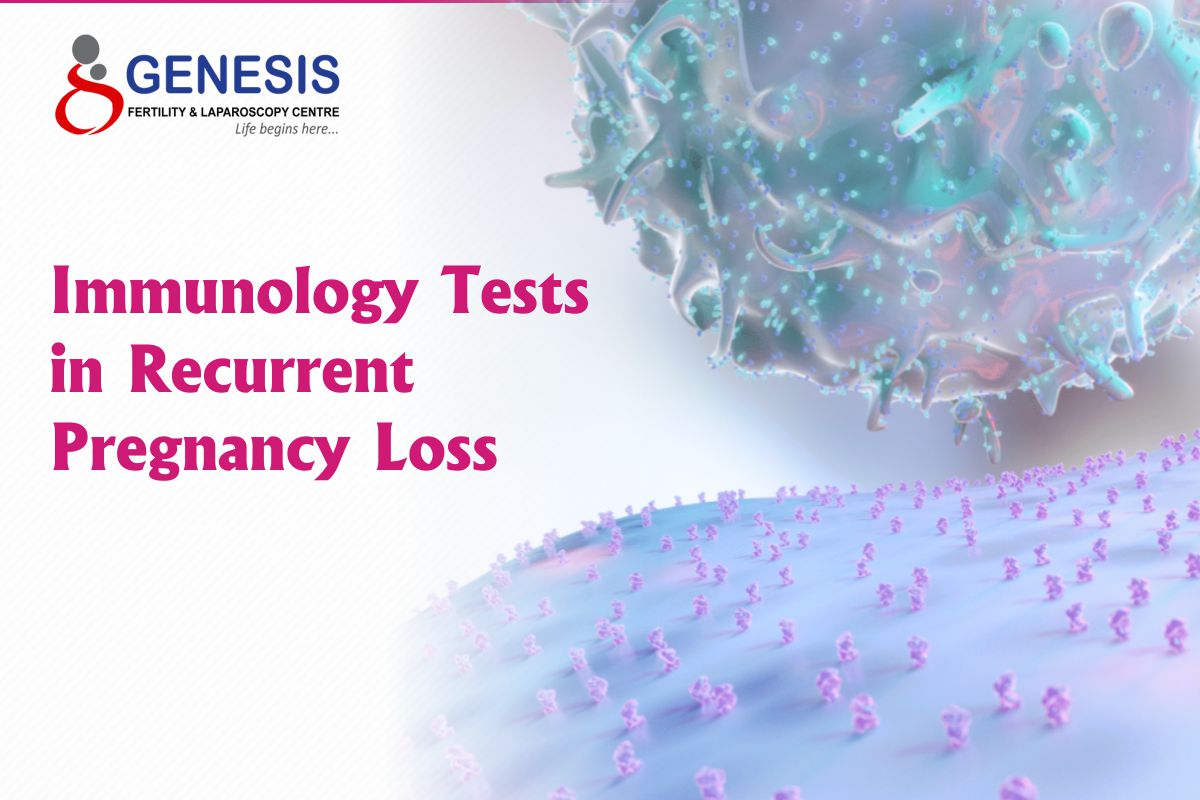Immunology Tests
Immunological tests will be discussed with the couple in following situations:
1. Recurrent pregnancy loss RPL(3 or more consecutive miscarriages)
2. Recurrent implantation failure RIF (3 or more failed embryo transfers)
3. Unexplained infertility
4. History of immune system disorders
5. Previous pregnancies with placental problems (pre-eclampsia, abruption, fetal growth
restriction)
Types of Immunology Tests –
Below-mentioned are some common ones
Antibody tests: Are advised because these tests when positive results in decrease in
1. Egg quality
2. Number of eggs collected
3. Rates of fertilisation
4. Embryo development
5. Embryo quality
6. Recurrent pregnancy loss
7. Recurrent implantation failures
1. Anti-Nuclear Antibody – Performed to check for disorders such as lupus, rheumatoid arthritis, etc. These antibodies lead to inflammation in the uterus during implantation)
2. Anti-Double Stranded DNA Antibody – A positive report of this immunology test means that the woman’s body treats the embryos as foreign bodies. To fight and get rid of the foreign substance, the body mistakenly makes an immune response)
3. NK Cell Assay (Blood and Endometrium) – Natural killer cells (NK Cells) are one of the three types of white blood cells. These cells generally help fight cancer and other infections. These are found to be active in women who experience repeated miscarriages. The natural killer cells assay test can help confirm the presence of these cells.
4. Th1/Th2 Cytokine Assay – T cells (Th1 and Th2) are a form of white blood cells. Th1 cells are the immune system’s response to infected or abnormal cells. Th2 cells oppose the response of Th1 cells. It is vital to have a balance of Th1 and Th2 cells. Women with a disturbed ratio of Th1 and Th2 cells experience RPL, RIF
5. Anti-Thyroglobulin Antibody
6. Anti-Thyroid Peroxidase antibody
7. Autoantibody Screen
ANTIPHOSPHOLIPID ANTIBODY APA –
Certain proteins found in the bloodstream can increase the likelihood of blood clots and thus lead to pregnancy loss. Antiphospholipid antibody APA immunology test helps examine the presence of these proteins
1. Lupus Anticoagulant
2. Cardiolipin Antibody IgG
3. Cardiolipin Antibody IgM
Thrombophilia – Blood Clotting Disorders –
In cases of normal pregnancy, the woman’s ability to form blood clots within the placenta and uterus is suppressed. In some women with an inherited or acquired medical condition, the blood clotting is not suppressed and can lead to RIF and RPL.
1. Anti-Thrombin III
2. Factor V Leiden Mutation
3. Protein C Deficiency
4. Protein S Deficiency
5. Prothrombin Gene Variant Mutation Analysis

